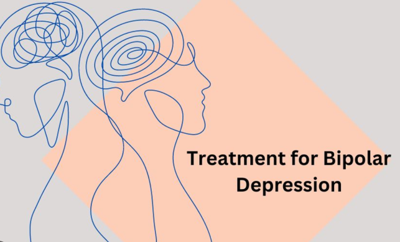
Finding our way through the murky waters of bipolar disorder with teens brings some unique challenges to families as well as practitioners. Bipolar disorder, a mood disorder marked by extreme fluctuations in mood, requires a comprehensive treatment plan. Identifying efficacious long-term treatments is critical in helping youth achieve stability and well-being.
Understanding Bipolar Disorder in Teens
The nature of adolescent bipolar disorder is often different than that of adults. Symptoms include changes in mood, irritability, and energy levels. These differences make it challenging to diagnose and require a thorough assessment by mental health professionals. This disorder can be managed more appropriately with early diagnosis and intervention through teen bipolar disorder treatment.
Medication Management
For bipolar disorder treatment, medication is often one of the first forms of treatment used. You may be prescribed mood stabilizers, antipsychotic drugs, or antidepressants to manage symptoms. However, medication does not work the same for everyone. Continuous monitoring ensures that the treatment is on course with the proper dosage and that side effects are reduced. Over time, symptoms can change, and your doctor may need to adjust your treatment accordingly.
Therapeutic Interventions
Therapy is not an alternative to medicine. Even though medications help regulate neurochemical disturbances, therapy will provide the necessary emotional support. Cognitive behavioral therapy (CBT) allows individuals to recognize and confront their negative thinking patterns. Family therapy helps facilitate family members' communication and reactions to one another. Psychotherapy provides a safe environment for teenagers to explore their feelings and develop strategies to cope. These interventions go a long way to giving longer-term stability.
Lifestyle Adjustments
A significant aspect of coping with bipolar disorder is including wellness behaviors. One way to improve mental health is by combining regular exercise, balanced nutrition, and adequate sleep. Promoting mindfulness activities like meditation or yoga lowers stress and improves emotional regulation. Establishing routines nudges teens toward a consistent and predictable daily life experience, which helps stabilize mood.
Support in Schools
Academic issues are common in adolescents with bipolar disorder. Individualized education plans designed for their particular requirements allow schools to play an essential role in offering help. When educators partner with mental health professionals, it ensures the right strategies are in place. Reducing workload, deadline extensions, flexible use of the learning environment, etc., are all aspects of convenience that lower stress and enhance academic performance sustainably.
Cultivating a Support Network
One of the most essential things for adolescents with bipolar disorder is to have a strong support system. A supportive circle of friends, family, or mental health professionals makes a huge difference. The positive impact of open communication in this network creates understanding and promotes better mental well-being that isn’t marred by feelings of isolation. Support groups allow teens to find others struggling with the same issues, giving them a sense of belonging and shared experiences.
Ongoing Monitoring and Follow Up
Taking medicines is only part of the equation; continuous symptom monitoring and treatment effectiveness monitoring are essential for long-term success. This allows your caregiving team to quickly adapt to your treatment plan, which happens at every follow-up appointment with different mental health professionals. Avoiding the avoidance is necessary. Open discussion on mood, behavior, or side effect changes will ensure early management. Regular check-ins put teens in better charge of their mental health journey.
Use of Technology in the Process
We live in a new age of technology accompanied by powerful tools that can enhance conventional care and treatment approaches. Mood tracking and medication reminder apps offer insights into patterns and triggers. Online therapy platforms are on the rise, providing greater accessibility for teens to gain support more conveniently. However, technology offers an ideal engagement strategy for managing the condition while allowing individuals to manage it independently, without replacing professional care.
Fostering Independence and Accountability
Keeping teens out of school will only make them believe that they are powerless over their mental health. Empowering them to take control of their well-being encourages independence and is the best, final self-therapy. Promoting autonomy includes teaching self-monitoring and decision-making. Engaging youth in what happens about their treatment fosters a greater sense of responsibility and ownership over their lives. By doing this now, you build their confidence and set them up for adulthood, managing bipolar disorder.
Treatment of teen bipolar disorder should be comprehensive and long-term. The young person can find solid stability with the right combination of medication, therapy, lifestyle changes, and educational support. Including a strong support network along with technology makes this treatment more effective. Finally, when you promote independence, you empower teens to tackle their mental health journey healthily. Using these strategies, teens with bipolar disorder can find a way to have a more balanced life.



(0) comments
We welcome your comments
Log In
Post a comment as Guest
Keep it Clean. Please avoid obscene, vulgar, lewd, racist or sexually-oriented language.
PLEASE TURN OFF YOUR CAPS LOCK.
Don't Threaten. Threats of harming another person will not be tolerated.
Be Truthful. Don't knowingly lie about anyone or anything.
Be Nice. No racism, sexism or any sort of -ism that is degrading to another person.
Be Proactive. Use the 'Report' link on each comment to let us know of abusive posts.
Share with Us. We'd love to hear eyewitness accounts, the history behind an article.